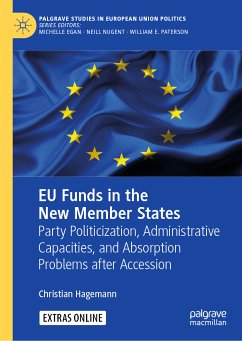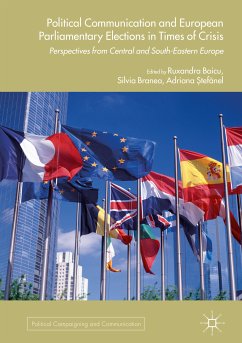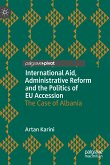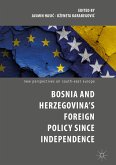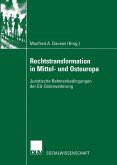"Why do some new member states struggle to access their EU funds? Drawing on insights from post-Communist politics and the politicization of the central state administration, Christian Hagemann argues convincingly for the relevance of politics together with poor capacities to account for absorption problems."
Petra Stykow, Chair of Comparative Political Systems, LMU Munich, Germany
"The book constitutes an admirable display of methodological rigor and empirical richness. Employing a mixed methods design, the book uncovers both general patterns and traces the causal mechanisms underpinning them. A must read for every scholar interested in EU studies more generally and the post accession politics more specifically."
Berthold Rittberger, Chair of Political Science and International Relations, LMU Munich, Germany
"Hagemann has written a book of great interest to students of comparative politics, as it engageswith debates about Europeanisation, implementation and compliance, and the development of post-Communist political systems. His empirically rich and analytically rigorous study of the absorption of EU funds draws attention to the importance of politicisation as a decisive explanatory variable."
Klaus H. Goetz, Chair of Political Systems and European Integration, LMU Munich, GermanyThis book examines new member states' problems with the absorption of EU funds. Since accession, many new member states from Central and Eastern Europe struggle to access their billions of development funds from Brussels. While existing research mostly emphasizes the role of states' administrative capacities to account for absorption problems, this study adds the so far neglected role of politics as party politicization to the equation. The argument is tested using a combination of fuzzy-set Qualitative Comparative Analysis (fsQCA) with two detailed process tracing case studies. This book will appeal to scholars interested in EU cohesion policy, post-accession compliance, and post-communist politics.
Christian Hagemann is Research Fellow in Policy Analysis at the Bavarian School of Public Policy at the Technical University of Munich (TUM), Germany. Dr Hagemann's research in the field of EU studies particularly focuses on the EU's transformative power in the post-communist space.
Dieser Download kann aus rechtlichen Gründen nur mit Rechnungsadresse in A, B, BG, CY, CZ, D, DK, EW, E, FIN, F, GR, HR, H, IRL, I, LT, L, LR, M, NL, PL, P, R, S, SLO, SK ausgeliefert werden.
Es gelten unsere Allgemeinen Geschäftsbedingungen: www.buecher.de/agb
Impressum
www.buecher.de ist ein Internetauftritt der buecher.de internetstores GmbH
Geschäftsführung: Monica Sawhney | Roland Kölbl | Günter Hilger
Sitz der Gesellschaft: Batheyer Straße 115 - 117, 58099 Hagen
Postanschrift: Bürgermeister-Wegele-Str. 12, 86167 Augsburg
Amtsgericht Hagen HRB 13257
Steuernummer: 321/5800/1497
USt-IdNr: DE450055826
Bitte wählen Sie Ihr Anliegen aus.
Rechnungen
Retourenschein anfordern
Bestellstatus
Storno

